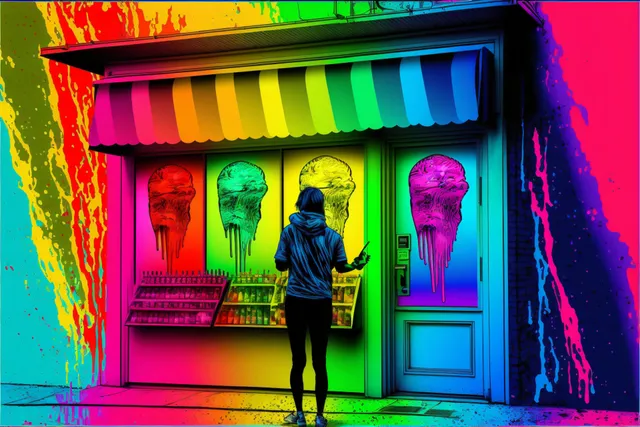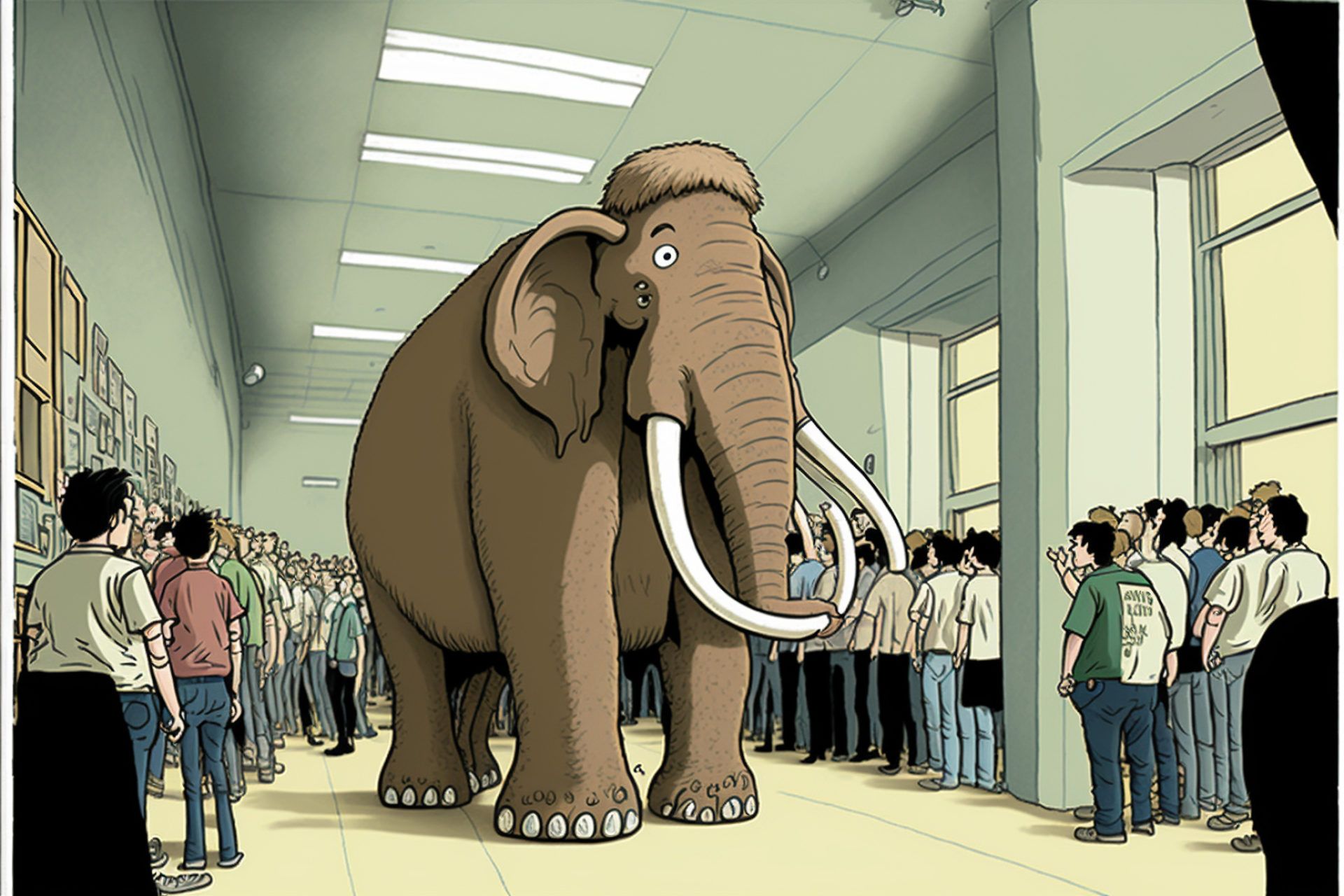Are You Begging for Eyes in the Attention Economy
This Week In Writing, we explore the internet’s move away from the attention economy and how writers can make the web more personal

I’m old enough to remember the internet’s first blogs. They were personal websites built with creativity and lots of really bad “under construction” gifs. Each site was a place of personal expression, and we formed little communities through our web rings and blogrolls (lists of links to our blogging friends, for any of you who don’t know what this gibberish means).
Enter Facebook and Twitter.
Most of us quickly moved our online presence to the walled gardens. Gone were the days of unique pages and creativity. Instead, we had uniformity. In the early days of both platforms, things were exciting. The lack of originality didn’t matter because everyone we knew was there.
Then came the algorithm and ad revenue. It no longer mattered who we followed; our ideas and thoughts were carved up and fed to a fraction of our communities and intermixed with ads and targeted “viral” content.
For the last decade, we’ve been driven by the attention economy. Commercial platforms trained us to chase digital affirmation and, in exchange, allowed our ideas to be seen by more eyeballs.
From a writing perspective, the attention economy forced a lot of good writers to create uninteresting content. Writing for SEO became a goal. Not telling a story or inspiring or educating, just tricking the feeds into thinking the words were valuable.
As a result, most web searches are basically useless. Samir Talwar explains that “Google broke the web,” and I agree. But so did Twitter, Facebook, and any other company that figured out how to keep us in their walled gardens while making crazy ad revenue off of our attention.
And, you know what? We allowed it to happen. Sure, we might not have realized it was happening until it was too late. But we were complicit nonetheless.
I’ve written my share of SEO-focused content for a few different clients. I know most writers have. That content, unfortunately, drives attention and builds audiences. Again, not because it’s of any quality, but because it’s what the ad-based feeds crave.
While feeding the SEO machine, we also gave up parts of ourselves. Not only were our identities and creative websites lost to uniform profiles, but our voices were also lost. Blog became a four-letter-word and looked down upon. We all accepted that people no longer wanted to read our mundane thoughts. But where did that idea originate?
Twitter’s implosion and Mastodon’s rise have shown that it didn’t have to be this way. We lost a decade of creativity and blogging in exchange for making a handful of companies more wealthy than most countries. Yet, an ad- and algorithm-free world is possible.
Mastodon is open-source and ad-free. People are kind, and conversations are exciting. It’s a place where people share their mundane thoughts and others actually respond.
I posted about accidentally forgetting my groceries in the car overnight, and people chimed in with concern. Frankly, I was shocked by the response. It’s not something I’ve experienced on ad-driven sites. That type of post would never make it through the feeds and would have been driven into obscurity.
We writers can help breed this resurgence of the community-driven internet or continue to fuel the attention economy. I choose the former. Not only is it more fun, but it connects us through ideas and reflects that we’re all individuals, not some polished brand.
To stop acting like a brand, I’ve restyled my website to highlight my personality. I’m using Mastodon to microblog the mundane and ordinary, which I find extremely interesting. I’m also rebuilding my writing community, which you’ll learn about next week.
Writers can lead the way to a community-led internet resurgence. Our words are powerful, and so are the audiences that read them. Let’s invest in spaces that build us up, not profit from molding us into their image.
How are you escaping the attention economy?

Speaking Of Mastodon…
A few of you wrote in confused about Mastodon. I’m not an expert, but I am enjoying learning as I go. Here’s some of the advice I shared with fellow writers this week that you may find helpful:
Mastodon differs from other social media networks because it’s more a protocolthan a specific platform. Tony Subblebine explains that Mastodon is like email — it doesn’t matter what email provider you sign up with because you can communicate with anyone.
As such, each Mastodon server (each domain) is run independently. Since the Mastodon software is open-source, there is no ad revenue to keep the servers running. Individuals or nonprofit organizations run most servers and accept donations. Medium’s Mastodon service is one of a tiny number of commercial servers. Because servers can be expensive, many limit the number of signups to ensure they can handle the server costs. That’s why some people run into trouble with the signup process and find closed servers.
I’m on the mastodon.online server, which the main Mastodon nonprofit organization runs. While signups are closed, I can generate an invite link that allows you to sign up. Once you’re on a server, everything else is very familiar — you search for people, follow them, and interact.
One of the really fun things about Mastodon is the Federated timeline — basically a live feed of all the domains connected to yours. It’s exciting seeing a real-time worldwide conversation and being able to interact accordingly.
Hashtags are essential on Mastodon. There’s no platform-wide search and no algorithm. So, to find people interested in things you are, you’ve got to use hashtags. It’s helpful. Many folks use the #introduction hashtag to talk about themselves and pepper it with hashtags that align with their interests. It’s a great way to connect with people.
Use my invite link and join the Mastodon party. It’s a lot of fun!

